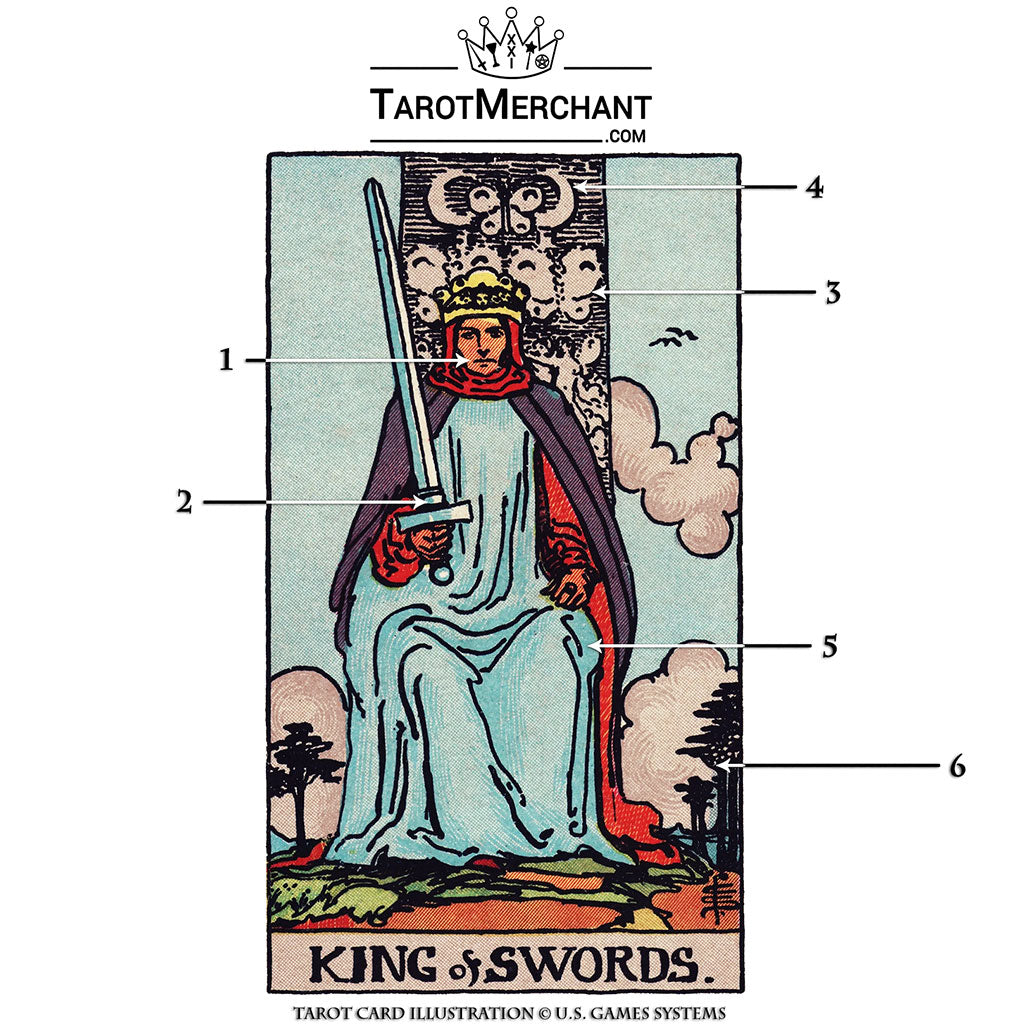The King of Swords is a card steeped in mystique and authority, conveying powerful archetypal energies that resonate deeply with myriad interpretations. But how might one reconcile the essence of this card with Christian perspectives? What can the sword wielded by this regal figure tell us about the divine interplay of intellect, wisdom, and moral responsibility? As we delve into this exploration, let’s consider a playful question: could the King of Swords be a reflection of Christ, wielding not only the sword of justice but also the sword of knowledge? The challenge lies in aligning the King’s fierce determination and critical thinking prowess with the fundamentally compassionate tenets of the Christian faith.
To commence our inquiry, the King of Swords epitomizes clarity and intellectual power. He is often depicted seated on a throne, wielding a sword that symbolizes the authority of the mind and the necessity for rational thought. This card encourages decision-making based on logic rather than emotion, and while these attributes are admirable in governance, they present a dichotomy when viewed through a lens of Christian values, which emphasize love, empathy, and the spirit of community.
When examining the King of Swords from the Christian perspective, it is imperative to draw the distinction between authority summoning fear and authority inspiring respect. In the realm of governance and morality, the King represents a leader who wields his sword to uphold law and order. However, what happens when the battle between intellect and compassion leads to a rigid adherence to the letter of the law, neglecting its spirit, which is often based on humility? In Christianity, Jesus Christ embodies a leader who eschews earthly power, exercising authority through kindness and self-sacrifice rather than domination.
Moreover, the King of Swords compels individuals to embrace discernment and wisdom. From a Christian standpoint, wisdom is not merely an intellectual pursuit but also a spiritual one. The Book of Proverbs extols the virtues of wisdom as a treasure more precious than gold. How does one reconcile the King’s cerebral dominance with the necessity of spiritual enlightenment? The challenge is to harmonize the King’s sharp analytical skills with the teachings of Christ, which call for a heart full of love and understanding. This blend of wisdom and compassion is crucial for genuine leadership that reflects both intelligence and grace.
Furthermore, on the battlefield of moral dilemmas, the King of Swords often represents the necessity for cutting through deception and manipulation. In Christian teachings, there is a similar call to discern truth amid a world often shrouded in falsehood. The challenge here may be in the manner of executing this discernment — does it lean towards harsh judgment or is it tempered with love? Those who seek to emulate the King’s strength must also cultivate empathy, recalling that righteous judgment is often accompanied by mercy.
Transitioning from the abstract to the practical, the King of Swords serves as a lens through which to analyze personal situations and societal issues alike. How does one navigate the complexities of modern life with the clarity and decisiveness exemplified by the King? In a world where misinformation is rampant and moral ambivalence is prevalent, individuals are invited to adopt a stance of critical thinking and discernment. Yet, could this lead to a judgmental viewpoint, one that overlooks compassion and understanding? Herein lies the essential challenge: maintaining a balance between pragmatic analysis and the nurturing spirit demonstrated by Christ.
Moreover, the card often invokes themes of honesty and integrity, both foundational elements in Christian doctrine. The King’s sword cuts away at dishonesty, a trait that aligns with biblical admonitions to pursue truth and righteousness. The Apostle Paul articulates this ideal in Ephesians, urging followers to “speak the truth in love.” This synthesis of truth and love is not simply a lofty notion; it is a practical guideline for navigating ethical dilemmas in daily life.
In the emotional realm, the King of Swords can sometimes appear distant and unyielding. This stark portrayal could pose a challenge in personal relationships, potentially leading to a perception of coldness, devoid of emotional warmth. In Christianity, however, relationships are rooted in love and fellowship. The juxtaposition invites reflection on how leaders can remain strong and firm without sacrificing their emotional connections to others.
Ultimately, the King of Swords beckons individuals to embrace both the intellectual rigor of logic and the transformative power of Christian love. In fostering this duality, one realizes that true leadership is not just about wielding authority but—or perhaps primarily—enveloping it within a framework of humility, kindness, and understanding. The conversation around the King of Swords offers profound implications for those seeking to navigate the complexities of life with both wisdom and grace. As one contemplates the messages of this card, they are encouraged to ponder: how might one embody this powerful synthesis in everyday actions, challenging oneself to strike a balance that honors both intellect and compassion? The path ahead may be intricate, but striving for this equilibrium may very well lead to personal and communal enrichment.







Leave a Comment